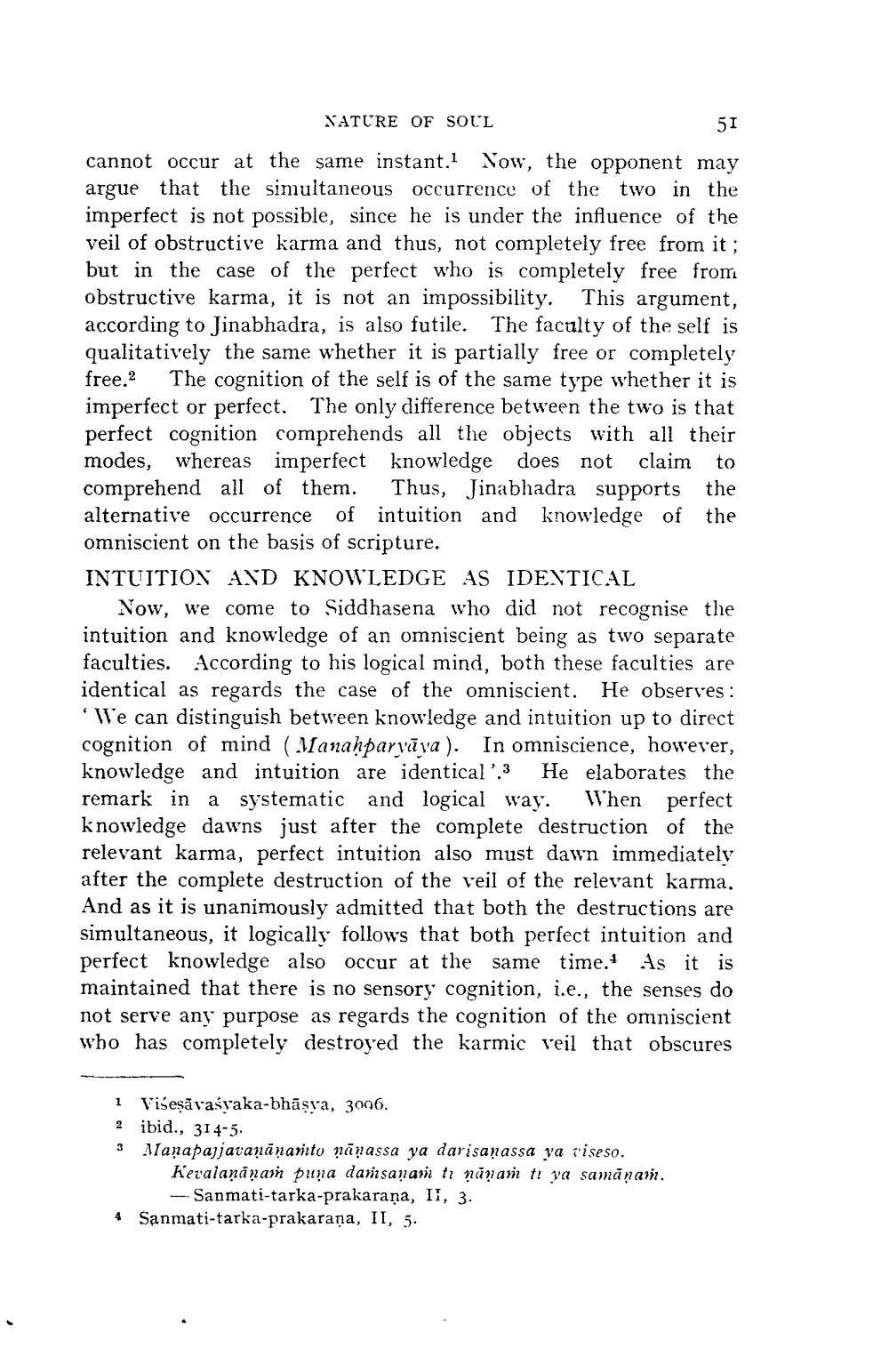________________
XATURE OF SOUL
51
cannot occur at the same instant. Now, the opponent may argue that the simultaneous occurrence of the two in the imperfect is not possible, since he is under the influence of the veil of obstructive karma and thus, not completely free from it; but in the case of the perfect who is completely free from obstructive karma, it is not an impossibility. This argument, according to Jinabhadra, is also futile. The faculty of the self is qualitatively the same whether it is partially free or completely free. The cognition of the self is of the same type whether it is imperfect or perfect. The only difference between the two is that perfect cognition comprehends all the objects with all their modes, whereas imperfect knowledge does not claim to comprehend all of them. Thus, Jinabhadra supports the alternative occurrence of intuition and knowledge of the omniscient on the basis of scripture. INTUITION AND KNOWLEDGE AS IDENTICAL
Now, we come to Siddhasena who did not recognise the intuition and knowledge of an omniscient being as two separate faculties. According to his logical mind, both these faculties are identical as regards the case of the omniscient. He observes:
We can distinguish between knowledge and intuition up to direct cognition of mind (JanahparvĀva). In omniscience, however, knowledge and intuition are identical'. 3 He elaborates the remark in a systematic and logical way. When perfect knowledge dawns just after the complete destruction of the relevant karma, perfect intuition also must dawn immediately after the complete destruction of the veil of the relevant karma. And as it is unanimously admitted that both the destructions are simultaneous, it logically follows that both perfect intuition and perfect knowledge also occur at the same time. As it is maintained that there is no sensory cognition, i.e., the senses do not serve any purpose as regards the cognition of the omniscient who has completely destroyed the karmic veil that obscures
1 Visesăvasvaka-bhāsva, 3006. 2 ibid., 314-5. 3 Maņapajjavaņāṇanto rānassa ya darisanassa ya riseso.
kevalaņāņam puna darsanam ti ņānam tu ya samānam,
---Sanmati-tarka-prakarana, II, 3. 4 Sanmati-tarka-prakaraņa, II, 5.




